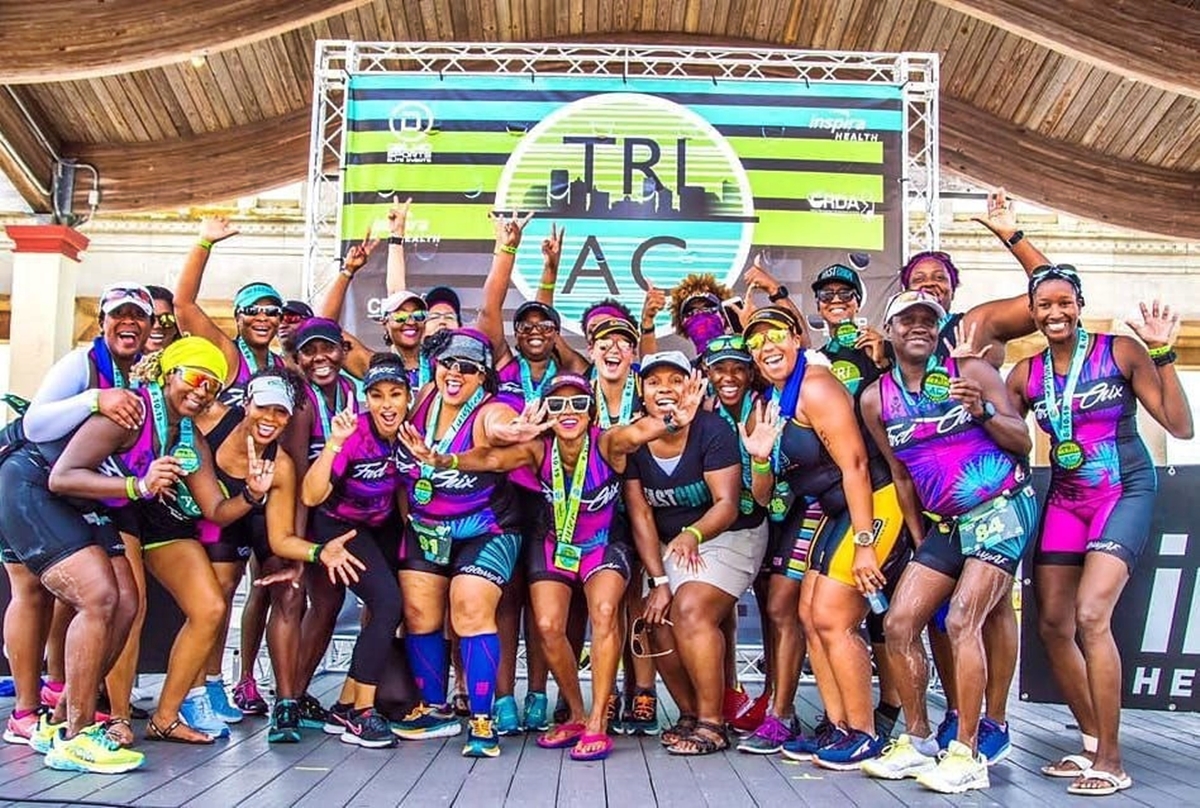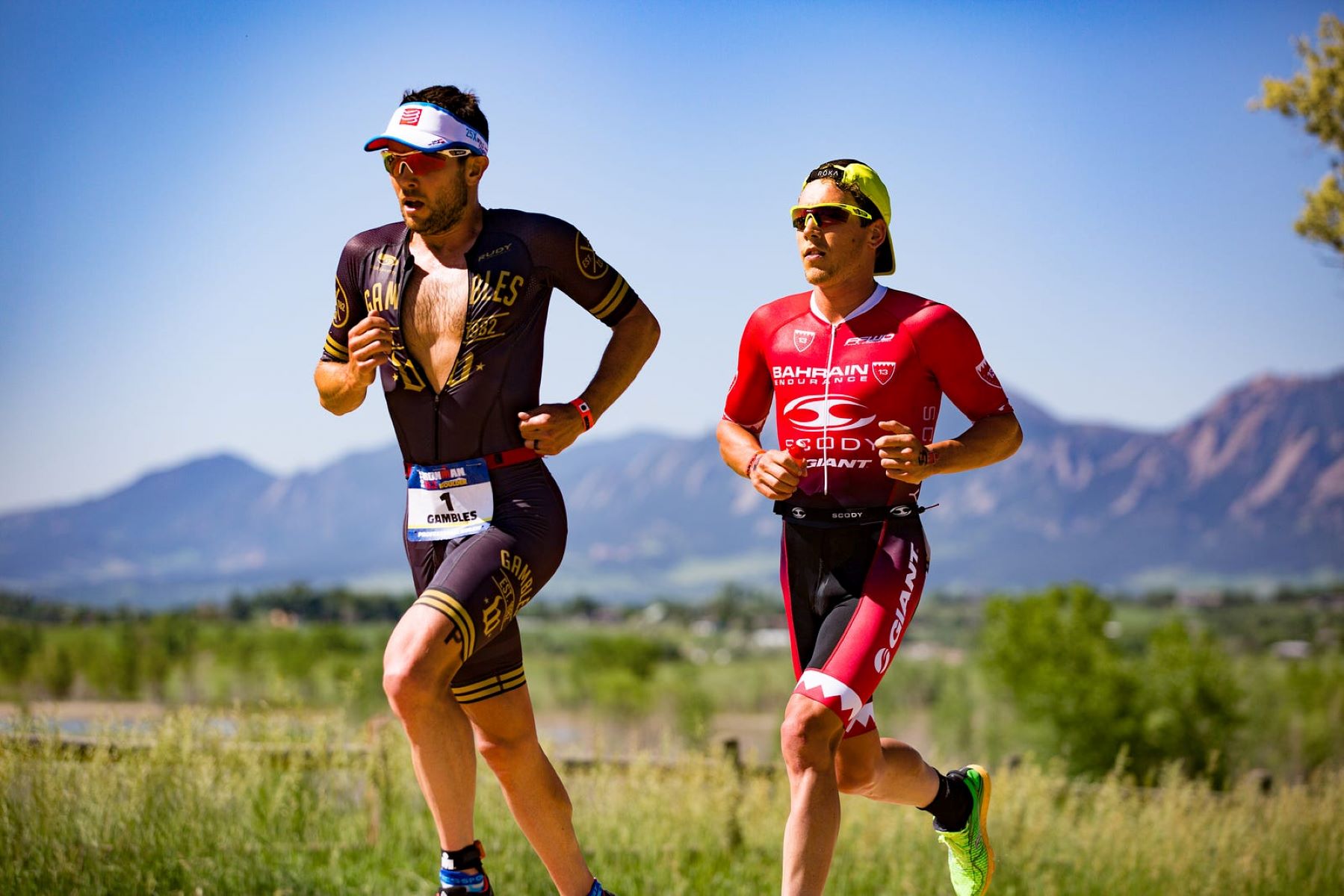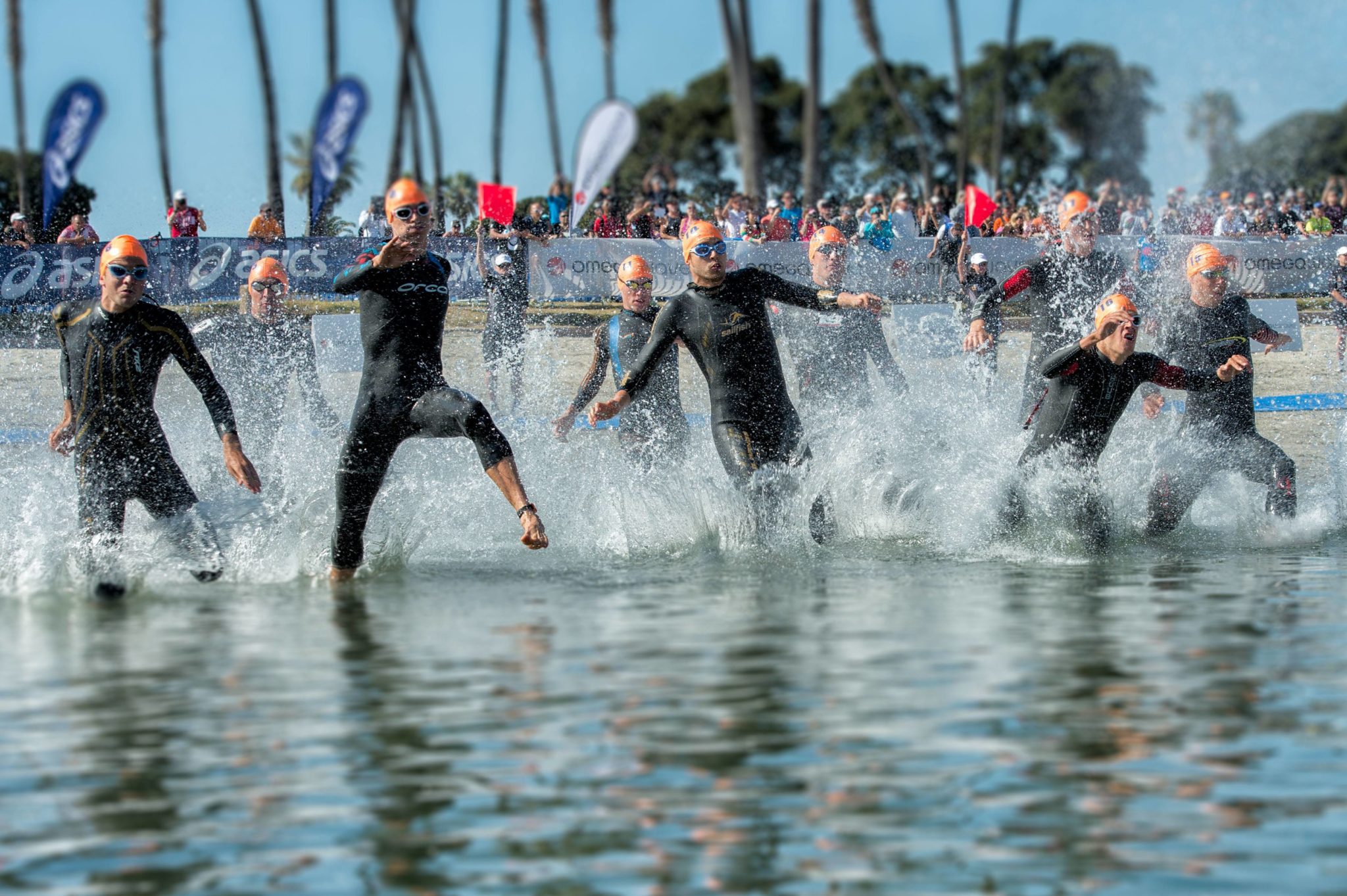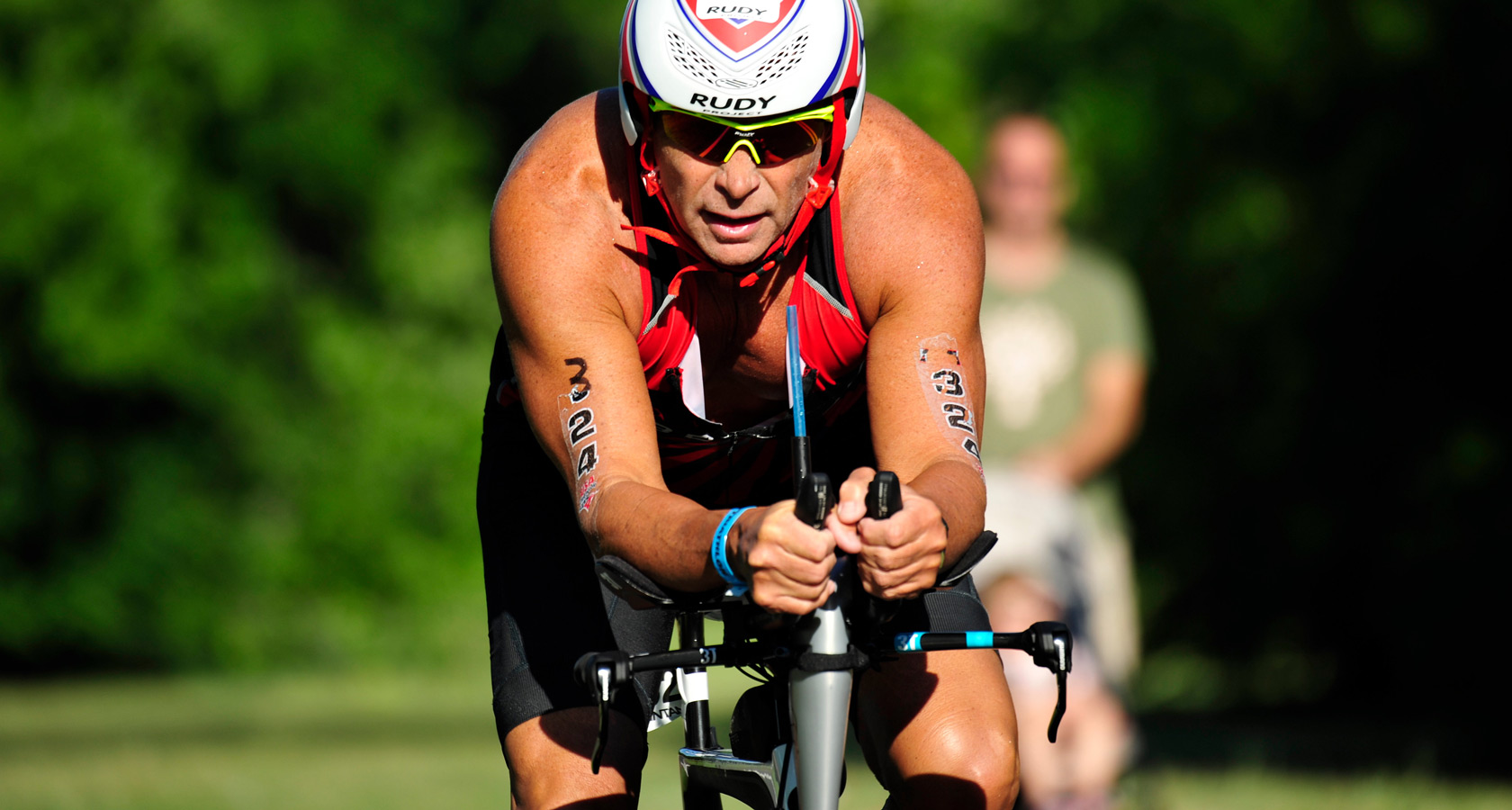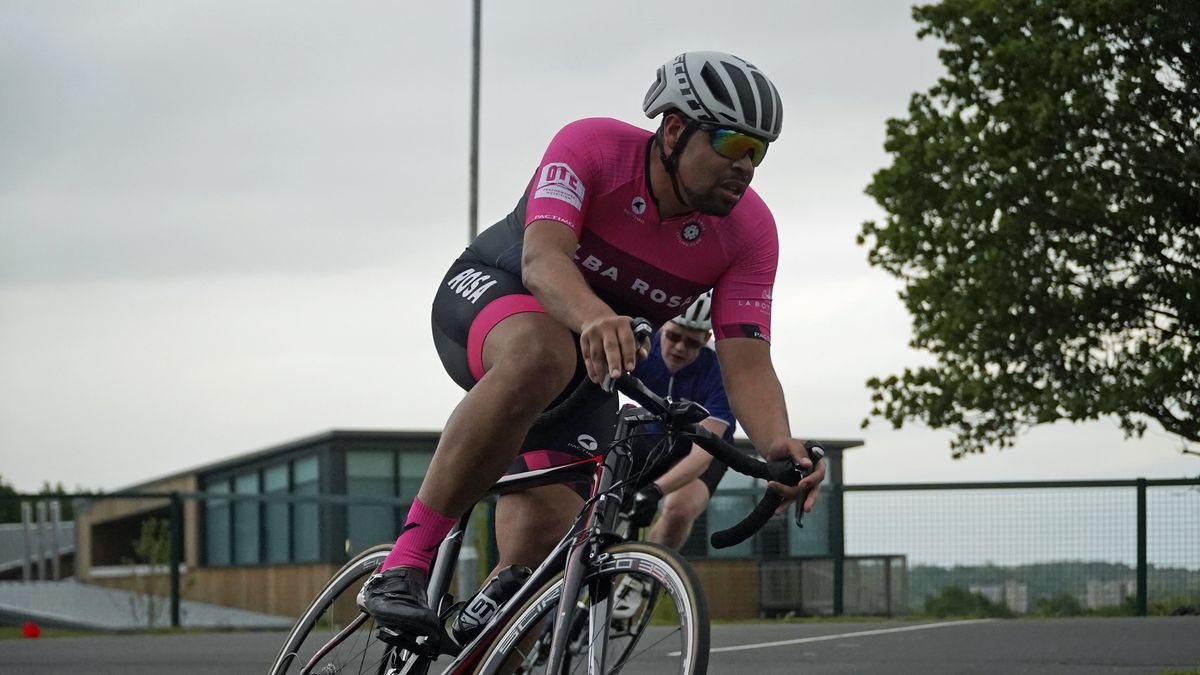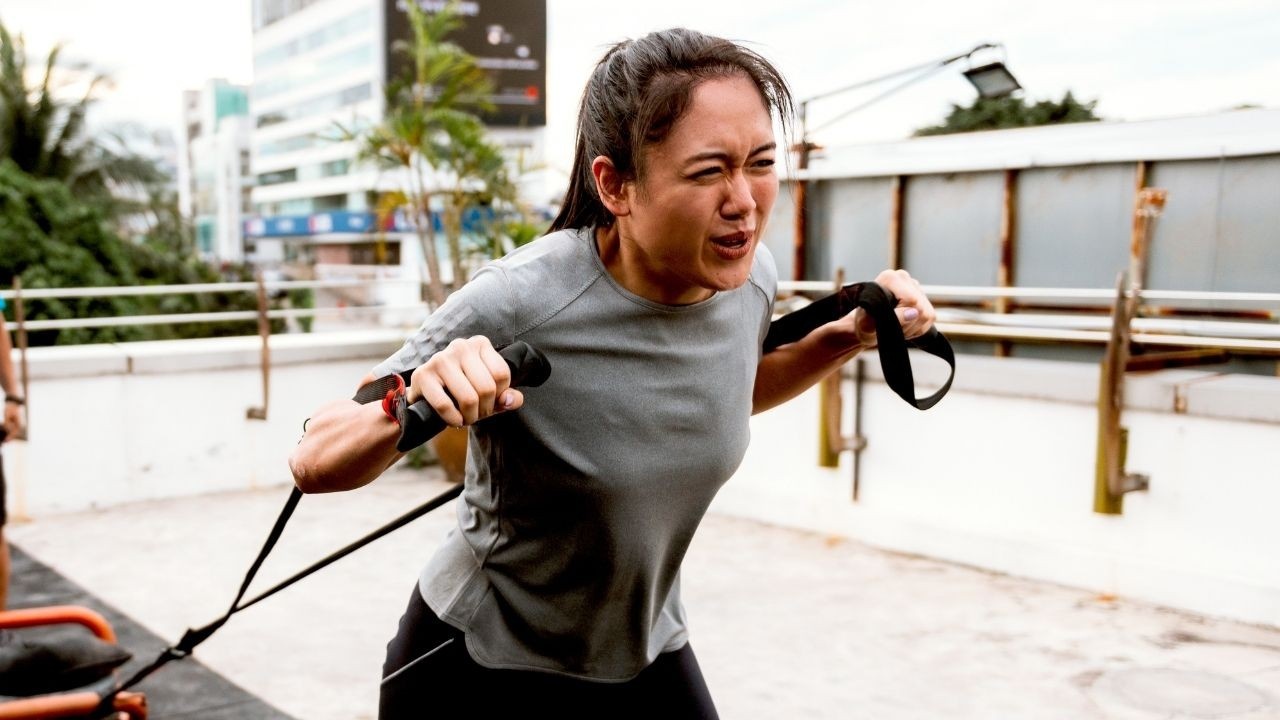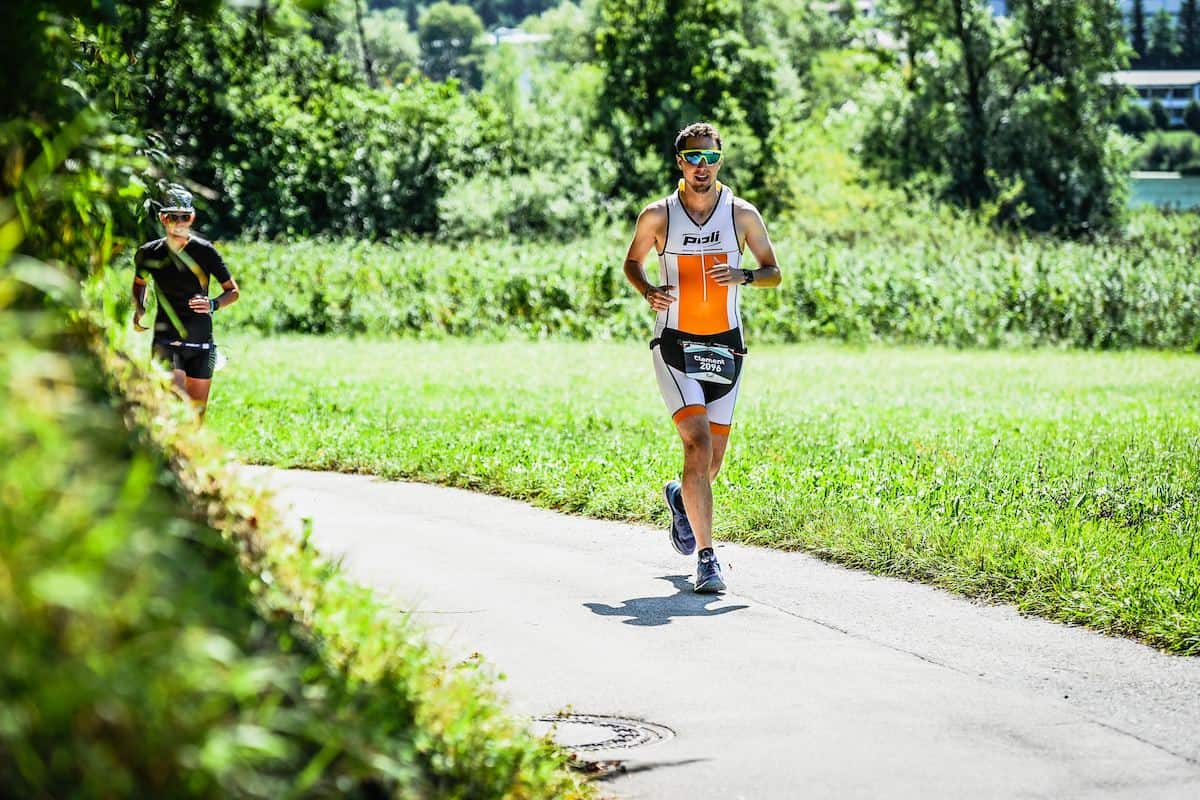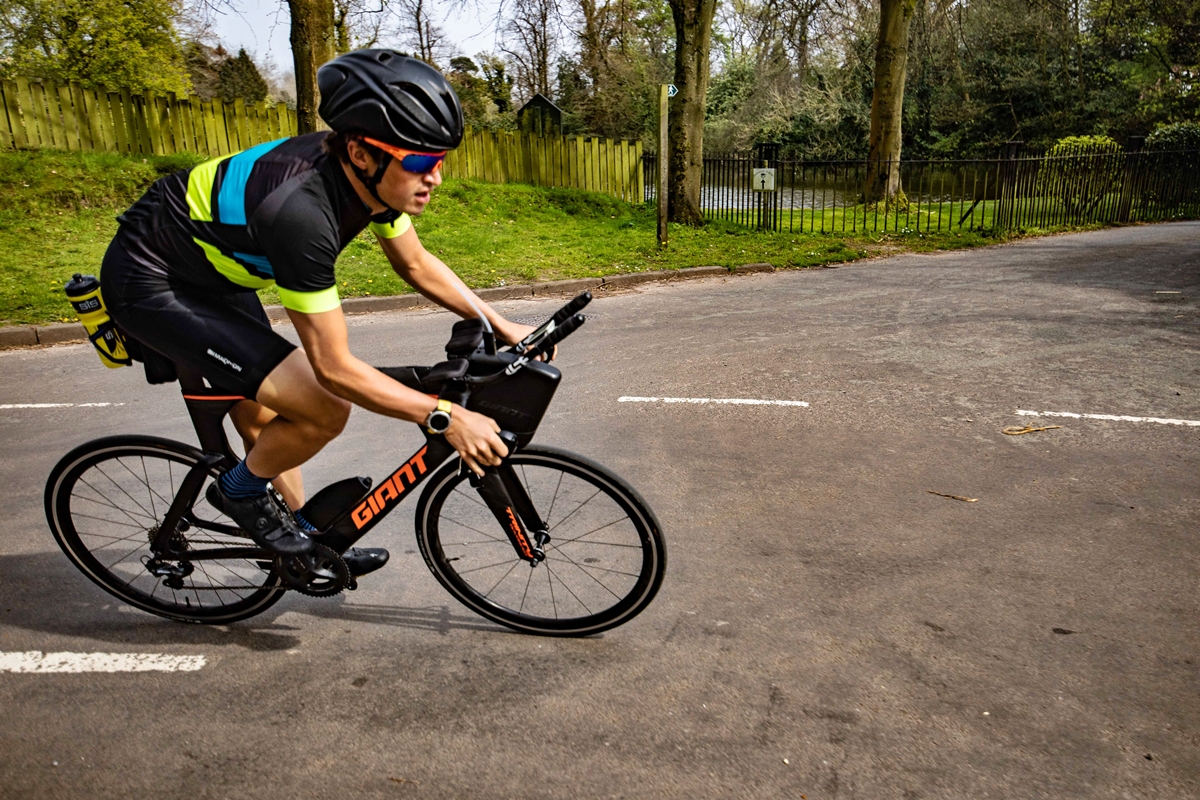

Featured
How To Be A Professional Triathlon Coach
Modified: January 2, 2024
Learn the essential tips and techniques to become a professional triathlon coach with our informative guide. Get featured in the world of triathlon coaching today!
Introduction
Welcome to the world of professional triathlon coaching! If you have a profound love for the sport and a passion for helping athletes achieve their full potential, then becoming a professional triathlon coach may be the perfect career path for you. This exciting and rewarding profession allows you to combine your expertise in endurance sports with your skills in guiding and motivating athletes to reach their goals.
In this article, we will explore the various aspects of being a professional triathlon coach, from the necessary qualifications and certifications to the intricacies of designing training plans and providing race day support. By the end, you’ll have a comprehensive understanding of what it takes to excel in this field and how to help your athletes become the best they can be.
Being a professional triathlon coach requires more than just a deep knowledge of the sport. It also calls for effective communication and motivation skills, a keen eye for athlete evaluation, and the ability to create tailored training programs that address individual strengths and weaknesses. Additionally, ensuring proper nutrition and hydration, preventing injuries, and supporting athletes during races are all integral aspects of the job.
Founded in the principles of swimming, cycling, and running, triathlon is a demanding sport that tests athletes’ endurance, speed, and mental fortitude. Triathletes must excel in three distinct disciplines and seamlessly transition between them in a race setting. As their coach, it’s your role to help them fine-tune their technique, optimize their training, and provide the support they need to succeed.
Throughout the rest of this article, we will delve into the necessary qualifications and certifications for a professional triathlon coach, as well as the specific skills and knowledge required to excel in each aspect of the job. So, let’s dive in and explore the fascinating world of being a professional triathlon coach!
Qualifications and Certifications
In the world of professional triathlon coaching, having the right qualifications and certifications is crucial to gaining credibility and building a successful career. While there is no specific degree or formal education required to become a triathlon coach, there are several certifications and experiences that can set you apart from the competition.
One of the most recognized certifications in the industry is the USA Triathlon (USAT) Coaching Certification. This program offers different levels of certification, including Level I, II, and III, each with its own prerequisites and requirements. The certification covers topics such as exercise physiology, training principles, athlete development, and race-specific training strategies. Achieving this certification demonstrates your commitment to continuing education and the ability to effectively coach triathletes of all levels.
Other notable certifications include the Ironman University Coach Certification and the British Triathlon Federation Coach Education Program. These certifications focus on specific aspects of triathlon coaching, such as long-distance racing or coaching at the national level. Obtaining these certifications allows you to specialize in certain areas of triathlon coaching and enhances your ability to cater to the unique needs of different athletes.
While certifications provide a solid foundation of knowledge, practical experience is equally important in becoming a professional triathlon coach. It is recommended to gain experience by assisting or shadowing experienced coaches, working with local triathlon clubs, or even volunteering at triathlon events. This hands-on experience allows you to apply your knowledge in real-world scenarios and learn from seasoned professionals.
In addition to certifications and experience, staying up-to-date with the latest research and advancements in the field is crucial. Attending conferences, workshops, and webinars, as well as reading scientific literature and coaching publications, can help you expand your knowledge and keep your coaching methods current.
While qualifications and certifications are essential, it’s important to emphasize that being a successful triathlon coach also requires a genuine passion for the sport and a strong desire to help others achieve their goals. Your own experience as a triathlete can also be valuable in understanding the physical and mental challenges athletes face and empathizing with their journey.
In the next sections, we will explore the various aspects of being a triathlon coach, including understanding the sport, designing training plans, evaluating athletes’ performance, and more. With the right qualifications and certifications under your belt, you are well-equipped to embark on this exciting career path and make a positive impact on the lives of your athletes.
Understanding the Sport of Triathlon
Before you can effectively coach triathletes, it is crucial to have a deep understanding of the sport of triathlon itself. Triathlon is not just about swimming, cycling, and running; it’s about the combination of these disciplines and the unique challenges that athletes face during the race.
Triathlons come in various distances, ranging from the sprint distance, which involves shorter distances in each discipline, to the Ironman distance, which includes a 2.4-mile swim, a 112-mile bike ride, and a full marathon run. The duration and intensity of each race differ significantly, necessitating tailored training plans and strategies for athletes to ensure optimal performance.
As a triathlon coach, it’s essential to have a strong grasp of the specific demands of each discipline and how they interact with one another. For example, swimming requires technique, efficiency, and the ability to handle open water conditions. Cycling involves understanding bike fit, gear ratios, and pacing strategies. Lastly, running requires endurance, speed, and proper biomechanics.
In addition to the individual disciplines, understanding transitions plays a vital role in triathlon coaching. The ability to smoothly and efficiently transition between swim-to-bike and bike-to-run is crucial for athletes to conserve energy and maintain momentum throughout the race. Coaches must provide guidance on transition setup, practice drills, and mental strategies to help athletes excel in this aspect of the race.
Furthermore, being aware of the rules and regulations of triathlon is essential. Understanding drafting rules, the use of race equipment, and the consequences of rule violations ensures that athletes are racing within the parameters of fair play and avoids unnecessary penalties or disqualifications.
Lastly, having knowledge of the various race formats within the sport of triathlon is important for creating tailored training plans. This includes understanding the differences between Olympic-distance, half Ironman, and Ironman races, as well as the specific requirements of off-road triathlons or triathlons with unique course features, such as hills or altitude.
By diving deep into the intricacies of the sport and gaining a comprehensive understanding, you will not only be able to design effective training plans but also provide valuable guidance and insights to help your athletes navigate the challenges they will encounter during races.
In the following sections, we will explore how to prepare training plans, evaluate athletes’ performance, develop their strengths and weaknesses, and provide guidance on nutrition, injury prevention, and mental skills training. Understanding the sport of triathlon is the foundation for all of these aspects and will greatly contribute to your success as a professional triathlon coach.
Preparing Training Plans
As a professional triathlon coach, one of your primary responsibilities is designing comprehensive and effective training plans for your athletes. These plans serve as a roadmap for their journey towards their race goals, ensuring they build the necessary endurance, speed, and skill in each discipline.
The first step in preparing a training plan is to assess the athlete’s current fitness level and goals. This includes conducting physical assessments, reviewing their race history, and discussing their aspirations and limitations. Understanding their strengths, weaknesses, and time commitments is crucial in creating a plan that is tailored to their individual needs.
Once you have gathered all the necessary information, you can start building a periodized training plan. Periodization is the practice of dividing the training cycle into specific phases, each with a different focus and intensity. The common phases include base training, build training, peak training, and tapering.
During the base phase, the emphasis is on building aerobic endurance and improving technique in each discipline. This phase typically involves longer, slower-paced workouts to develop a solid foundation. As the athlete progresses to the build phase, the intensity increases, incorporating more interval training, tempo sessions, and race-specific simulations.
The peak phase is where the focus shifts towards fine-tuning the athlete’s fitness and specific race preparation. Workouts during this phase simulate race conditions, including race pace efforts, brick workouts (combining two disciplines), and long training sessions to further enhance endurance.
Tapering is the final phase before the race, where the training volume and intensity are reduced to allow for recovery and optimal performance. This phase is vital to ensure that athletes are fresh, mentally sharp, and physically prepared to give their best on race day.
It’s important to note that training plans should also consider the athlete’s other commitments outside of triathlon, such as work and family responsibilities. Striking a balance between training and recovery is essential to prevent overtraining and burnout.
Flexibility is key in preparing training plans as well. Not every athlete will progress at the same rate or respond the same way to training stimulus. As a coach, you need to be attentive to your athletes’ feedback, monitor their progress, and make adjustments as needed. This may include modifying workout intensity, duration, or incorporating alternative exercises for injury prevention or recovery.
Communication is crucial when implementing training plans. Regular check-ins, athlete-coach meetings, and tracking progress through training platforms or software help ensure that athletes are on track and provide an opportunity to address any concerns or changes that need to be made. Furthermore, offering guidance on proper technique, pacing strategies, and mental skills can greatly enhance athletes’ performance and confidence.
By preparing well-structured and individualized training plans, you set your athletes up for success and help them progress towards their goals in a safe and efficient manner. In the next sections, we will discuss how to evaluate athletes’ performance, enhance their strengths, address weaknesses, and provide guidance on nutrition, mental skills training, and injury prevention.
Evaluating Athletes’ Performance
Evaluating athletes’ performance is a crucial aspect of being a professional triathlon coach. It allows you to assess their progress, identify areas for improvement, and make informed adjustments to their training plans. By closely monitoring and analyzing their performance, you can guide them towards reaching their peak potential.
One of the primary methods of evaluating performance is through regular and structured testing. This involves conducting specific tests to measure various aspects of fitness, such as aerobic capacity, threshold power, swim stroke efficiency, and running speed. Testing can be done in a controlled environment, such as a laboratory or a track, or through field tests that simulate race conditions.
These tests provide valuable data that can help you track progress over time and identify strengths and weaknesses. For example, a swim test can reveal if an athlete needs to work on their technique or their ability to maintain a consistent pace. A cycling test can determine their power output and help you adjust their training zones and intensity. A run test can assess their running economy and provide insights into their form and speed.
While objective data from testing is important, it is equally crucial to consider subjective feedback from the athletes themselves. Regular communication and open dialogue allow you to understand how they feel during workouts, how they perceive their progress, and if they are experiencing any challenges. Their feedback can provide valuable insights into their mental state, motivation levels, and any factors that may be affecting their performance.
Additionally, video analysis can be an invaluable tool in evaluating athletes’ form and technique. By recording their swimming, cycling, and running, you can identify any biomechanical issues or areas for improvement. This visual feedback allows you to provide specific cues and exercises to help them optimize their efficiency and reduce the risk of injury.
Another aspect to consider when evaluating performance is looking beyond individual discipline data. Triathlon is a multi-discipline sport, and success depends on the ability to transition smoothly between swim, bike, and run. Assessing their split times, transition times, and race strategy can provide insights into where improvements can be made and how to maximize their overall race performance.
It’s important to approach performance evaluation with a holistic mindset. While improving fitness and technique is crucial, assessing an athlete’s mental skills and overall well-being is equally important. Factors such as mental resilience, race-day mindset, and stress management can have a significant impact on their performance. Regular discussions and observation of their mental state can help you provide guidance and strategies to optimize their mental performance.
By regularly evaluating athletes’ performance, you can identify areas of improvement, track progress, and make data-driven adjustments to their training plans. This comprehensive approach ensures that your athletes are continually progressing and reaching their full potential. In the following sections, we will explore how to develop athletes’ strengths, address weaknesses, provide nutrition and injury prevention guidance, enhance mental skills, and offer race day support.
Developing Athletes’ Strengths and Weaknesses
As a professional triathlon coach, one of your key responsibilities is to help your athletes develop their strengths and address their weaknesses. By identifying and focusing on these areas, you can help them become well-rounded and competitive triathletes.
The first step in this process is to assess your athletes’ strengths and weaknesses. This can be done through performance evaluations, feedback from the athletes themselves, and observation during training sessions and races. By understanding their natural abilities and areas for improvement, you can create a targeted plan to maximize their potential.
For athletes who excel in a particular discipline, it is important to help them further develop and leverage their strengths. This may involve incorporating more advanced training techniques, such as interval workouts or specific drills, to enhance their performance in that discipline. Providing guidance on race strategy and tactics can also help them fully utilize their strengths during competition.
On the other hand, athletes may have weaknesses or areas where they are less proficient. This is an opportunity for you as a coach to offer targeted training and skill-building exercises to address these weaknesses. For example, if an athlete struggles with swimming, focusing on techniques such as body position, breathing, and stroke mechanics can make a significant difference. Similarly, if an athlete has difficulty with endurance in the run, incorporating longer runs and interval work can help them build the necessary strength and stamina.
It’s important to note that addressing weaknesses requires patience and a gradual approach. Pushing athletes too hard or too quickly to improve their weaknesses can lead to burnout or injury. Incremental progress, along with regular evaluation and feedback, enables athletes to make steady improvements without unnecessary strain.
Furthermore, taking a balanced approach to overall development is important. While it’s essential to focus on weaknesses, it’s equally important not to neglect an athlete’s strengths. By maintaining a balance between enhancing strengths and addressing weaknesses, you can help create well-rounded athletes who are capable of excelling in all aspects of triathlon.
A crucial aspect of developing athletes’ strengths and weaknesses is providing regular feedback and support. Constructive feedback helps athletes understand areas for improvement and motivates them to work towards their goals. Offering praise and recognition for their progress and achievements further boosts their confidence and commitment to training.
Ultimately, developing athletes’ strengths and weaknesses is a continuous process that evolves as the athlete progresses. As their coach, it is your role to constantly assess their performance, provide guidance, and adjust training plans as needed. This personalized approach helps athletes reach their potential and achieve their goals in the sport of triathlon.
In the upcoming sections, we will explore how to balance training and recovery, provide nutrition and hydration guidance, enhance mental skills, prevent injuries and rehabilitate, and offer support on race day. These aspects all contribute to the holistic development of triathletes and ensure their success in the sport.
Balancing Training and Recovery
One of the key responsibilities of a professional triathlon coach is to help athletes find the delicate balance between training and recovery. Triathlon training can be physically demanding, and proper recovery is essential to prevent overtraining, injuries, and mental burnout.
Training plans are designed to challenge athletes and elicit adaptations in their bodies. However, it’s important to remember that it’s during recovery that these adaptations occur. Recovery allows the body to repair damaged tissues, restore energy stores, and improve overall fitness.
A fundamental aspect of balancing training and recovery is incorporating rest days into the training plan. Rest days provide the opportunity for physical and mental recovery, allowing the body to rejuvenate and adapt to the demands of training. It’s important to communicate the significance of rest days to athletes and encourage them to embrace these days as an integral part of their training journey.
In addition to rest days, active recovery is another beneficial strategy. Active recovery involves engaging in low-intensity activities, such as gentle swimming or easy cycling, to promote blood flow and facilitate muscle recovery. These activities help flush out metabolic waste products and enhance the recovery process without causing additional stress or fatigue.
Proper nutrition plays a critical role in the recovery process. Providing guidance on post-workout nutrition, including the consumption of carbohydrates, protein, and adequate hydration, facilitates muscle repair and glycogen replenishment. Encouraging athletes to prioritize wholesome, nutrient-dense foods throughout the day supports overall recovery and promotes optimal performance.
Sleep is another vital component of the recovery equation. During sleep, the body releases growth hormones and undertakes tissue repair, aiding in muscle recovery and strengthening the immune system. Emphasizing the importance of quality sleep and educating athletes on healthy sleep habits can significantly enhance their recovery and overall well-being.
As a coach, it’s essential to monitor the athletes’ training load and response to training. Tracking metrics such as training volume, intensity, heart rate variability, and perceived exertion can provide insights into their readiness for training and potential signs of overtraining. Recognizing these signs early on enables adjustments to the training plan to prevent burnout and keep the athletes on track.
Effective communication is crucial in balancing training and recovery. Encouraging open dialogue with athletes regarding their physical and mental state allows you to make informed decisions about their training load and recovery strategies. Athletes should feel comfortable discussing any concerns, fatigue, or external stressors that may impact their recovery process.
Flexibility is also important when it comes to balancing training and recovery. Training plans need to be adaptable to accommodate unforeseen circumstances, such as illness, injury, or unexpected life events. Adjusting the training schedule and workload based on individual circumstances helps maintain consistency and prevents excessive stress on the body and mind.
By striking the right balance between training and recovery, athletes can optimize their performance, reduce the risk of injuries, and sustain long-term progress. As a coach, your role is to guide athletes in understanding the importance of recovery, providing support during periods of rest, and making adjustments to the training plan as needed. In the upcoming sections, we will delve into nutrition and hydration guidance, mental skills training, injury prevention and rehabilitation, as well as race day support, all of which contribute to the holistic approach of triathlon coaching.
Nutrition and Hydration Guidance
Nutrition and hydration play a vital role in the performance and overall well-being of triathletes. As a professional triathlon coach, providing guidance in these areas is essential to help athletes optimize their training, enhance recovery, and perform at their best on race day.
Proper nutrition is the foundation for optimal athletic performance. It’s important to educate athletes about the significance of a well-balanced diet that includes a variety of macronutrients and micronutrients. Carbohydrates, proteins, and fats are all essential for energy production, muscle repair, and overall health.
Carbohydrates are the primary source of fuel during endurance exercise. Emphasizing the importance of complex carbohydrates, such as whole grains, fruits, and vegetables, helps athletes maintain adequate glycogen stores for sustained energy. Optimizing carbohydrate intake before, during, and after training sessions and races assists in optimizing performance and recovery.
Protein is crucial for muscle repair and growth. Encouraging athletes to consume high-quality protein sources, such as lean meats, fish, eggs, and plant-based proteins, supports the recovery process and aids in maintaining muscle mass. The timing of protein intake, particularly post-workout, is important for maximizing its benefits.
Fats are an essential energy source, particularly during longer training sessions and lower intensity efforts. Promoting the consumption of healthy fats, such as avocados, nuts, seeds, and olive oil, helps athletes meet their energy needs and supports overall health and well-being.
In addition to macronutrients, micronutrients play a crucial role in athletes’ performance and recovery. Encouraging a diet rich in vitamins, minerals, and antioxidants found in fruits, vegetables, and whole foods helps support the immune system, reduce inflammation, and aid in recovery.
Hydration is equally important as proper nutrition for athletes. Fluid balance is essential for temperature regulation, nutrient transport, and overall performance. Providing guidance on adequate fluid intake before, during, and after training sessions is important to prevent dehydration and maintain optimal performance.
During longer training sessions and races, athletes may benefit from electrolyte replenishment to replace minerals lost through sweat. Sports drinks or electrolyte supplements can help maintain proper hydration and electrolyte balance. Encouraging athletes to practice their hydration and fueling strategies during training sessions allows them to fine-tune their intake and ensure it works for them on race day.
It’s important to note that nutrition needs are highly individualized. Athletes may have unique dietary preferences, allergies, or intolerances that need to be considered. As a coach, it’s important to work with each athlete to develop a nutrition plan that suits their needs and goals.
Not only should coaches provide guidance on nutrition, but they should also emphasize the importance of fueling and hydrating strategies during races. Pre-race nutrition plans, race fueling strategies, and post-race recovery meals are all critical aspects to optimize performance and enhance recovery.
Continued education and staying up-to-date with the latest research on nutrition and hydration are essential for coaches. This allows them to provide evidence-based guidance to athletes and adapt recommendations based on new findings in the field of sports nutrition.
By providing comprehensive nutrition and hydration guidance, coaches empower athletes to make informed choices and optimize their fueling strategies. This aspect, alongside mental skills training, injury prevention and rehabilitation, and race day support, contributes to a holistic approach to triathlon coaching.
Mental Skills Training
Triathlon is not just about the physical aspect; it also requires mental fortitude and resilience. As a professional triathlon coach, incorporating mental skills training into your coaching practice is essential to help athletes excel in the sport and overcome challenges during training and races.
Mental skills training involves developing strategies and techniques to optimize an athlete’s mindset and mental performance. It helps athletes build confidence, improve focus, manage stress, and enhance their overall mental well-being.
One of the key aspects of mental skills training is goal setting. Encouraging athletes to set specific, measurable, achievable, relevant, and time-bound (SMART) goals helps drive motivation and provides a sense of direction. Goal setting helps athletes stay focused, track their progress, and celebrate their achievements along the way.
Visualization is another important tool in mental skills training. Guiding athletes to visualize themselves successfully executing their race plan, overcoming obstacles, and achieving their goals can enhance their confidence and performance. Regular visualization practice helps familiarize athletes with the race environment, boosts their self-belief, and improves their ability to handle race-day pressure.
Positive self-talk and affirmations are powerful tools in building mental resilience. Encouraging athletes to replace negative thoughts or self-doubt with positive and empowering thoughts helps cultivate a strong and confident mindset. Positive self-talk can help athletes stay motivated, push through perceived barriers, and recover from setbacks.
Managing race-day nerves and stress is another significant aspect of mental skills training. Teaching athletes relaxation techniques, such as deep breathing exercises and progressive muscle relaxation, help them calm their minds and bodies before the race. Practicing mindfulness and focusing on the present moment can also help athletes stay grounded and fully immerse themselves in their performance.
Adaptability and resilience are essential mental skills for triathletes. Helping athletes embrace uncertainty, adapt to changing race conditions, and cope with unexpected challenges during training and races is crucial. The ability to bounce back from setbacks, adjust race strategy, and maintain a positive mindset contributes to long-term success in the sport.
As a coach, fostering a supportive and positive training environment is paramount in nurturing athletes’ mental skills. Creating open lines of communication, providing constructive feedback, and building a sense of camaraderie among athletes promotes a positive mindset and enhances their mental well-being.
Lastly, it’s important to remember that mental skills training is an ongoing process. As athletes progress in their triathlon journey, their mental skills may need to evolve and adapt. Regular check-ins, open dialogue, and adjustments to mental skills training strategies based on individual needs are key elements for continued growth.
By incorporating mental skills training into your coaching practice, you empower athletes to develop a strong mental foundation. This aspect, combined with other components like nutrition and hydration guidance, injury prevention and rehabilitation, and race day support, contributes to a holistic approach to triathlon coaching.
Injury Prevention and Rehabilitation
Injury prevention and rehabilitation are crucial aspects of being a professional triathlon coach. Triathlon training can put significant stress on the body, and ensuring athletes stay healthy and injury-free is essential to their long-term success in the sport.
One of the key components of injury prevention is designing well-rounded training plans. This includes incorporating cross-training activities, strength and conditioning exercises, and rest days. Cross-training helps athletes develop overall fitness and reduces the risk of overuse injuries by providing variety and reducing repetitive stress on specific muscles and joints.
Strength and conditioning exercises targeting muscle imbalances and weaknesses are also important for injury prevention. Addressing weak areas and improving stability helps athletes maintain proper form and reduce the risk of injuries. Promoting proper biomechanics in swimming, cycling, and running technique minimizes the strain on the body and prevents overuse injuries.
Warm-up and cool-down routines play a crucial role in injury prevention as well. Encouraging athletes to perform dynamic stretching, mobility exercises, and foam rolling before each workout helps prepare the body for the demands of training. Implementing static stretching and gentle cool-down exercises post-workout aids in muscle recovery and reduces stiffness.
In the unfortunate event that an athlete does sustain an injury, it’s important to have a plan in place for rehabilitation. Coaches should have a network of trusted healthcare professionals, including physiotherapists or sports therapists, who can provide expert guidance and support in the recovery process.
Rehabilitation programs should be tailored to the specific injury and individual needs of the athlete. This may involve a combination of rest, physical therapy exercises, and gradual return to training. Ensuring that athletes follow the rehabilitation plan, monitoring their progress, and providing ongoing support are crucial to their successful recovery.
As a coach, it’s important to promote open communication with athletes about any discomfort or pain they may experience. Encouraging athletes to speak up and address potential issues early on can help prevent minor injuries from developing into more severe conditions.
Providing guidance on injury prevention strategies, such as proper equipment selection, appropriate footwear, and regular body maintenance, is also important. Educating athletes on self-care techniques, such as foam rolling, stretching, and icing, empowers them to take an active role in preventing injuries and maintaining their overall muscular health.
It’s crucial to approach injury prevention and rehabilitation with a proactive mindset, continuously updating and adjusting training plans in response to the athletes’ physical condition. By prioritizing injury prevention and providing comprehensive rehabilitation support, coaches can help athletes stay healthy, minimize setbacks, and continue their progress towards their goals.
In the upcoming sections, we will explore how to provide effective communication and motivation, offer race day support, and conclude with the overall impact of professional triathlon coaching on athletes’ development and success.
Communication and Motivation
Effective communication and motivation are essential skills for a professional triathlon coach. Building strong connections with athletes, providing clear guidance, and fostering a supportive training environment are all critical to their development and success in the sport.
Open and consistent communication with athletes is key to understanding their needs, goals, and concerns. Regular check-ins, athlete-coach meetings, and group discussions create opportunities to address any questions or challenges they may have. Being an attentive listener and showing genuine interest in their progress and well-being builds trust and rapport.
Clear and transparent communication is crucial in setting expectations and outlining training plans. Clearly explaining the purpose and objectives of each training phase or session helps athletes understand the purpose behind their workouts, leading to improved compliance and motivation. Providing feedback and performance evaluations constructively helps athletes identify areas for improvement and celebrate their successes.
Motivation plays a significant role in coaching triathletes. Understanding each athlete’s individual motivations and goals allows coaches to tailor their approach to maximize their drive and commitment. Some athletes may be motivated by competition and achieving podium finishes, while others may find fulfillment in personal bests or the enjoyment of the training process. Recognizing and addressing their individual motivations helps coaches provide the necessary support and encouragement.
A positive and supportive training environment is essential for athletes to thrive. Creating a sense of community, camaraderie, and mutual respect among athletes fosters a supportive atmosphere. Encouraging athletes to celebrate each other’s achievements, offer support during challenging workouts, and engage in team-building activities promotes a positive training culture.
Coaches play a crucial role in providing motivation during challenging periods or when athletes face setbacks. Encouraging athletes to set goals, both short-term and long-term, gives them a sense of purpose and direction. Offering strategic guidance, support, and reassurance during tough times helps athletes overcome obstacles and maintain their motivation.
Flexibility and adaptability in coaching styles are important to cater to each athlete’s unique personality and needs. Some athletes thrive with a more hands-on approach, requiring constant guidance and feedback. Others may prefer a more autonomous approach, where the coach acts as a facilitator and provides advice when needed. Being attuned to individual preferences and adjusting coaching methods accordingly enhances communication and motivation.
As a coach, passion and enthusiasm are contagious. Demonstrating genuine excitement for athletes’ progress, celebrating their achievements, and showing belief in their abilities inspire them to push beyond their comfort zones. Coaches who genuinely care about their athletes’ well-being and success form deep connections that motivate, encourage, and elevate their athletes to new heights.
Lastly, coaches should continuously invest in their own professional development and education. Staying up-to-date with the latest training methodologies, sports science research, and coaching techniques enables coaches to provide the most effective guidance and motivation to their athletes.
Communication and motivation are essential pillars of professional triathlon coaching. Building strong connections, providing clear guidance, and fostering a supportive environment empower athletes to reach their full potential. In the next section, we will explore the importance of race day support and the role coaches play in helping athletes execute their race strategies and achieve their goals.
Race Day Support
Race day is the culmination of weeks or even months of training and preparation for a triathlete. As a professional triathlon coach, providing race day support is crucial to help athletes execute their race strategies, manage their emotions, and achieve their goals.
Leading up to race day, coaches play a pivotal role in helping athletes create a well-thought-out race plan. This plan includes pacing strategies, nutrition and hydration guidelines, and mental approaches to handle various race scenarios. Clear communication of the race plan ensures athletes have a solid framework to work with, boosting their confidence and reducing pre-race anxiety.
On the morning of the race, providing guidance on pre-race routines and warm-ups helps athletes feel prepared and ready to go. This includes advice on optimal nutrition choices, proper hydration, and a warm-up routine that prepares the body for the specific demands of the race. Assuring athletes that they are physically and mentally ready instills a sense of confidence and readiness.
During the race itself, coaches serve as a trusted source of support and motivation. They can be stationed at strategic points along the course to provide encouragement, monitor athletes’ progress, and offer tactical guidance. Their presence and familiar voice serve as a reassuring anchor for athletes, helping them stay focused, maintain their race plan, and push through challenging moments.
Coaches can also assist with logistical support, such as organizing race logistics, coordinating support crews, or tracking splits and times. This allows athletes to solely focus on their race performance, knowing that their coach is handling the finer details.
Race day is not always filled with smooth sailing. Athletes may encounter unforeseen challenges or face mental and physical fatigue. Coaches play a crucial role in managing these obstacles. They provide mental reinforcement, helping athletes stay motivated and positive when doubts start to creep in. Offering reminders of their training, previous successes, and their ability to overcome challenges helps athletes regain their focus and push forward.
Post-race support is equally important. Coaches debrief with athletes to discuss the race, evaluate their performance, and celebrate their accomplishments. This reflection enables athletes to gain valuable insights, learn from their experiences, and prepare for future races.
Overall, race day support is more than just physical presence; it is about providing emotional support, guidance, and motivation when athletes need it most. The coach-athlete relationship built over weeks or months of training solidifies on race day, as coaches witness the culmination of their athletes’ hard work and dedication.
Through race day support, coaches not only ensure their athletes have the best chance of achieving their goals but also foster a sense of camaraderie and teamwork. Cheering on athletes, connecting with other coaches, and celebrating together create a supportive environment that enhances the overall triathlon experience for everyone involved.
In the final section, we will summarize the impact of professional triathlon coaching on athletes’ development and success, highlighting the integral role that coaches play in guiding and supporting triathletes throughout their journey.
Conclusion
Being a professional triathlon coach is a multifaceted and rewarding role that involves guiding and supporting athletes throughout their triathlon journey. From designing training plans to providing race day support, coaches play a crucial role in helping athletes achieve their full potential in the sport.
Qualifications and certifications form the foundation of a professional triathlon coach, ensuring they have the necessary knowledge and expertise to guide athletes effectively. Understanding the sport of triathlon, including the demands of each discipline and the intricacies of transitions, enables coaches to create tailored training plans that address individual strengths and weaknesses.
Effective communication and motivation are essential for building strong coach-athlete relationships. By fostering open communication, providing clear guidance, and fostering a supportive training environment, coaches empower and motivate athletes to push beyond their limits and achieve their goals.
Nutrition and hydration guidance, as well as injury prevention and rehabilitation strategies, are vital aspects of professional triathlon coaching. By educating athletes on proper fueling, hydration, and self-care techniques, coaches help them optimize their performance and maintain their overall health and well-being.
Mental skills training is another integral component of coaching, allowing athletes to develop a strong and resilient mindset. Teaching goal-setting, visualization, positive self-talk, and stress management techniques enables athletes to overcome challenges, stay focused, and perform at their best both in training and on race day.
Race day support is the culmination of a coach’s efforts, where they provide guidance, motivation, and logistical assistance to athletes during the race. By being a pillar of support, coaches contribute to their athletes’ race strategies, manage their emotions, and help them achieve their goals.
Overall, professional triathlon coaching encompasses a holistic approach that addresses all aspects of the sport. It combines expertise in training, nutrition, injury prevention, and mental skills to guide and support athletes through their triathlon journey. Professional coaching is not just about physical development; it is also about the personal growth, resilience, and achievement of each athlete.
As a professional triathlon coach, your dedication to your athletes and your commitment to ongoing learning and development will make a significant impact on their success and overall enjoyment of the sport. By providing the knowledge, support, and inspiration they need, you have the power to help them reach new heights in triathlon and have a lasting impact on their lives as athletes.

